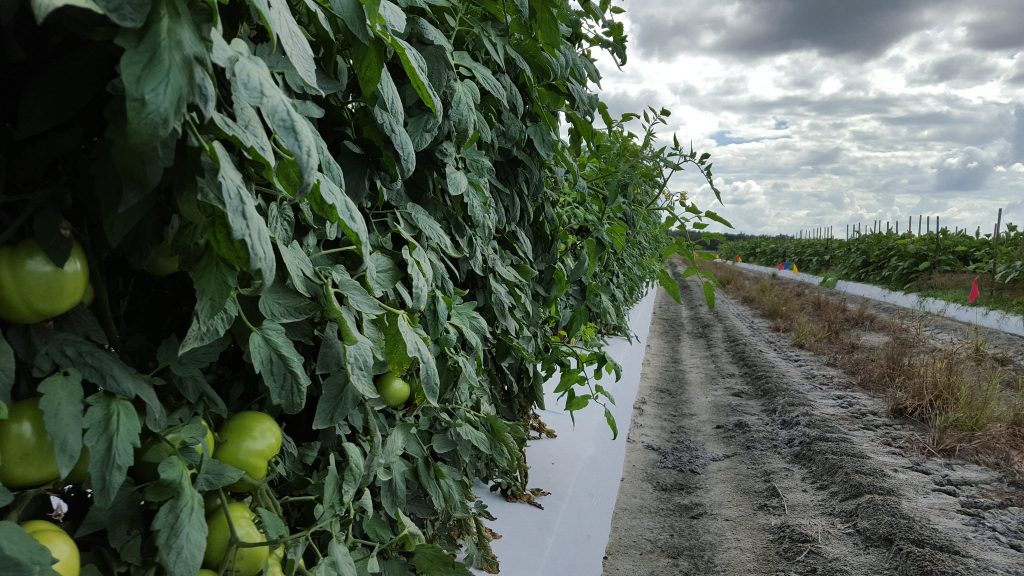
Planting season is nearing for Alabama vegetable producers. One system that all farmers need to consider is plasticulture. Plastic mulches can lead to cleaner fruit with much more yields.
Joe Kemble, Alabama Extension vegetable specialist, discussed the benefits of producing tomatoes in a plasticulture system during a webinar on Tuesday.
It starts with yields.
“Using these plastic mulches just by themselves can result in yields 1.5 to 3 times over average of what you would normally produce,” Kemble said.
Plastic mulches also allow farmers to apply nutrients and water more efficiently, since they would be applied underground.
“It allows you to precisely apply fertilizer and water because you have drip irrigation tape underneath. There’s no other way to get water under there because these are raised beds, so you’ve got to use drip irrigation along with it,” Kemble said.
The use of drip irrigation also leads to cleaner fruit. There is less water splashing on the bottom of the fruit and subsequent splashing up into the plant canopy.
One of its most important features, though, is it allows farmers to reach the market earlier.
“Earliness in the fresh market is typically when you make more money. If I’m a commercial grower and I’m earlier than my neighbor, chances are I’m going to make a little bit more money than they would,” Kemble said.
A plasticulture system can be utilized on various scales, from large-scale farmers to homeowners’ gardens.
“There’s lots of options for people wanting to try something like this,” Kemble said.









